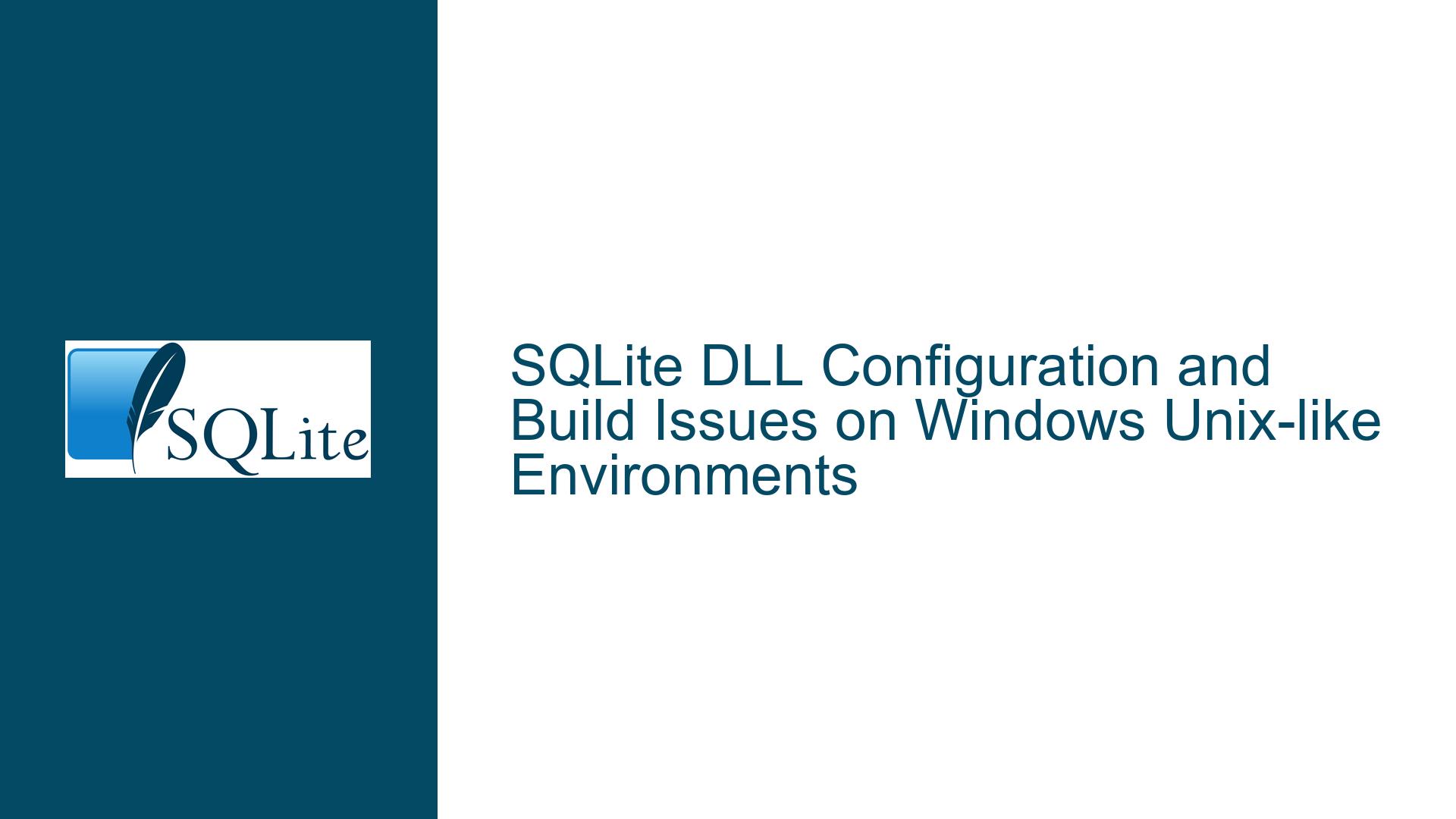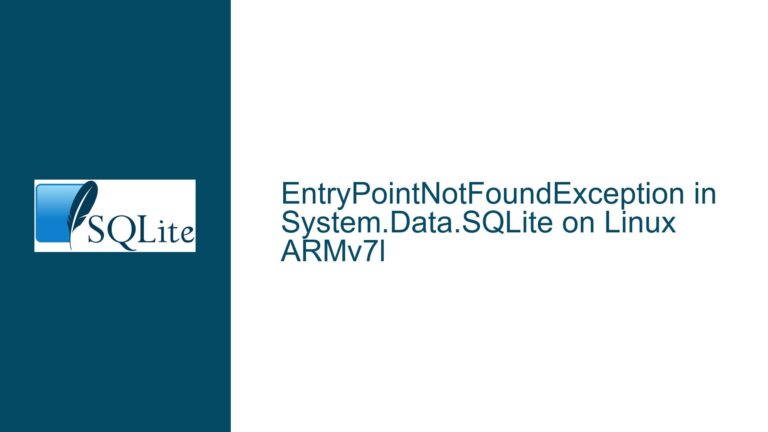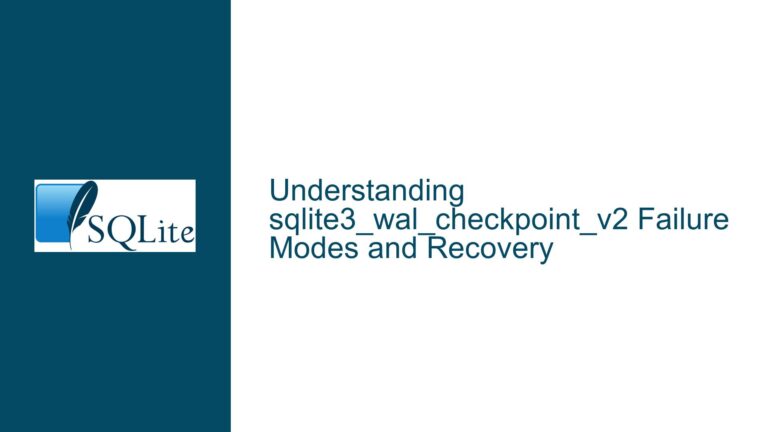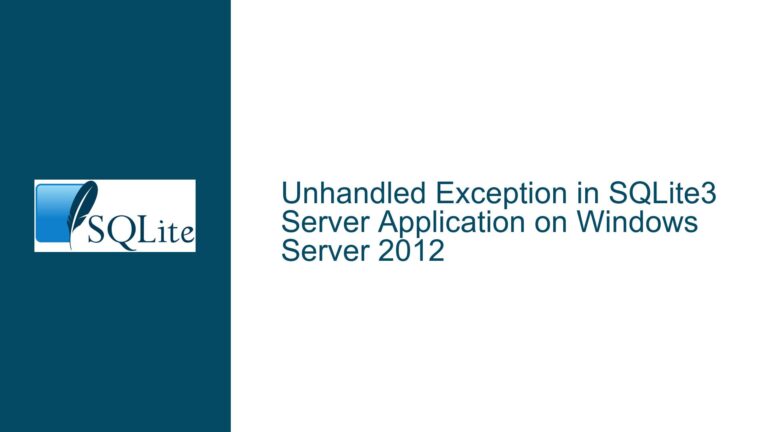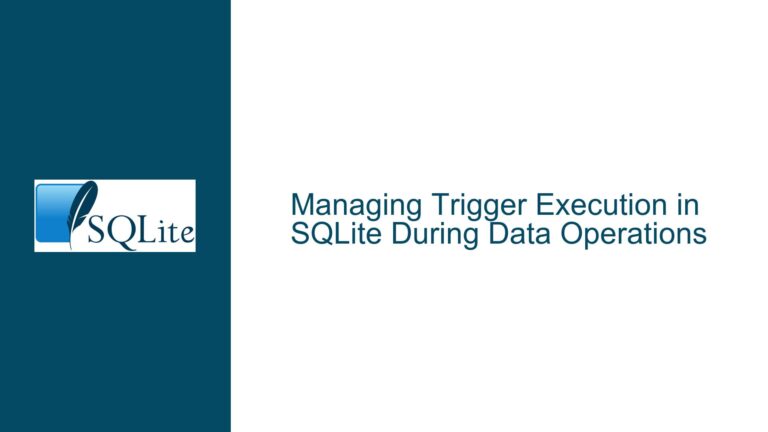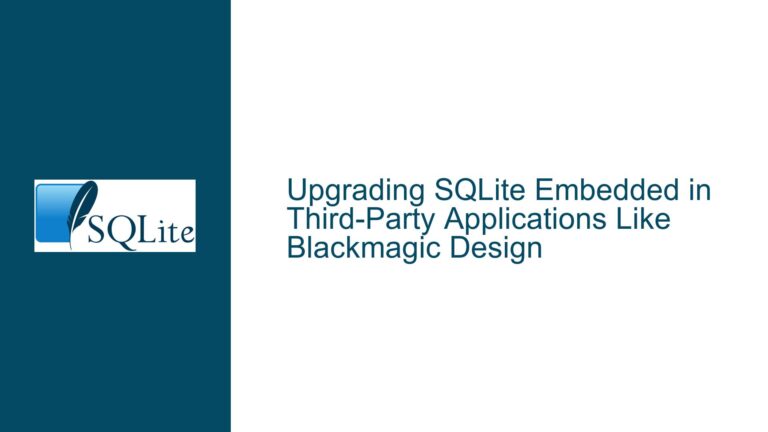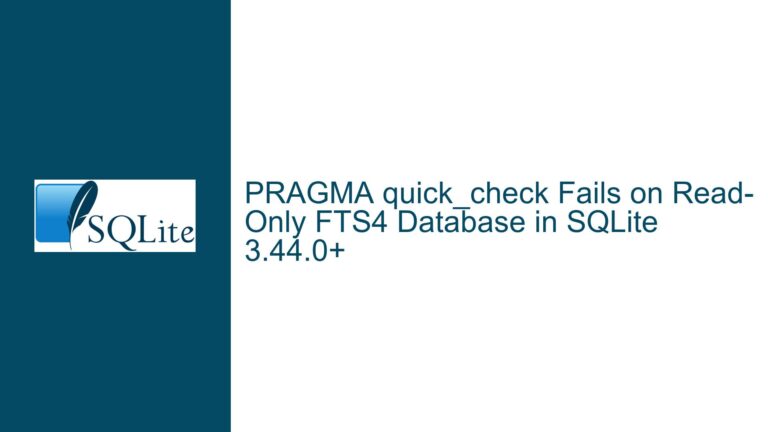SQLite DLL Configuration and Build Issues on Windows Unix-like Environments
DLL Naming and Import Library Installation Challenges
The core issue revolves around the configuration and installation of SQLite’s Dynamic Link Library (DLL) and its associated import library on Unix-like environments for Windows, such as msys2, cygwin, and mingw. The primary challenge lies in ensuring that the DLL and import library are correctly named and installed according to the conventions of these environments. The configure script has been updated to include new flags (--dll-basename and --out-implib) to allow for more flexible naming and installation of these components. However, several issues have arisen during testing, particularly with the installation of the import library and the handling of the DLL’s base name.
The --dll-basename flag allows users to specify a custom base name for the DLL, which defaults to environment-specific names like cygsqlite3-0 for cygwin, msys-sqlite3-0 for msys2, and libsqlite3-0 for mingw. The --out-implib flag controls the generation and installation of the import library, which is necessary for linking against the DLL. The import library is typically named libsqlite3.dll.a and should be installed in the $prefix/lib directory, while the DLL itself is installed in $prefix/bin.
During testing, it was observed that the import library was not being installed correctly in some cases, leading to errors in the build logs. Additionally, there were inconsistencies in how the DLL’s base name was being handled across different environments. These issues were further complicated by the need to support cross-compilation scenarios, where the build environment differs from the target environment.
Interrupted Import Library Installation and Cross-Compilation Errors
One of the primary causes of the issues observed is the incomplete handling of the import library installation process. In some cases, the import library was generated but not installed, leading to errors such as /bin/sh: line 1: [: missing ']' in the installation logs. This issue was traced back to a bug in the installation script, which was subsequently fixed. However, the fix required multiple iterations, and some users reported that the issue persisted even after the initial fix was applied.
Another significant cause of the issues is the complexity of cross-compilation environments. When building SQLite for a Windows target using a Unix-like environment, the build process must account for differences in file naming conventions, library paths, and toolchain configurations. For example, in a cross-compilation scenario using the x86_64-w64-mingw32 toolchain, the build process failed because the mksqlite3h.tcl script attempted to execute mksourceid without the .exe extension, which is required on Windows. This issue was resolved by modifying the script to append the .exe extension when running on Windows-like environments.
Furthermore, the handling of the -rpath linker flag has been called into question. The -rpath flag is used to specify the runtime library search path, but its current implementation does not align with the installation paths used in these environments. Specifically, the libraries are installed in $prefix/bin, but the -rpath flag points to $prefix/lib. This misalignment can lead to runtime linking errors and needs to be addressed to ensure compatibility with these environments.
Implementing Environment-Specific Configuration and Cross-Compilation Fixes
To address these issues, several changes have been made to the SQLite build and configuration process. First, the --out-implib flag has been updated to automatically enable the generation and installation of the import library on platforms that require it, such as msys2, cygwin, and mingw. If the flag is not provided, the build system will now default to --out-implib=auto for these platforms, and a warning will be emitted to inform the user of this behavior. Similarly, the --dll-basename flag will default to --dll-basename=auto for these platforms, ensuring that the DLL is named according to the conventions of the target environment.
For cross-compilation scenarios, the build process has been updated to handle Windows-specific requirements, such as the need for .exe extensions on executable files. The mksqlite3h.tcl script has been modified to append the .exe extension when running on Windows-like environments, ensuring that the mksourceid executable can be correctly invoked. Additionally, the build system has been updated to better handle the -rpath linker flag, ensuring that it points to the correct library installation directory.
To further improve the robustness of the build process, the following steps are recommended:
Environment Detection and Configuration: The
configurescript should be enhanced to better detect the target environment and apply the appropriate configuration settings automatically. This includes setting the correct DLL base name, enabling the import library generation, and configuring the-rpathlinker flag.Cross-Compilation Support: The build system should be tested extensively in cross-compilation scenarios to ensure that it handles Windows-specific requirements correctly. This includes verifying that executable files have the correct extensions and that library paths are correctly specified.
User Feedback and Iteration: Users should be encouraged to provide feedback on the build process, particularly in edge cases and less common environments. This feedback should be used to iterate on the build system and address any remaining issues.
Documentation and Examples: Comprehensive documentation should be provided to guide users through the configuration and build process, particularly for cross-compilation scenarios. This documentation should include examples of common configurations and troubleshooting steps.
By implementing these changes, the SQLite build system can be made more robust and user-friendly, particularly for users working in Unix-like environments for Windows. These improvements will help ensure that the DLL and import library are correctly named and installed, and that the build process works seamlessly across a wide range of environments and use cases.
Detailed Troubleshooting Steps and Solutions
Step 1: Verifying the Environment and Configuration
Before attempting to build SQLite, it is essential to verify that the environment is correctly configured. This includes ensuring that the correct toolchain is installed and that the environment variables are set up correctly. For example, when using the x86_64-w64-mingw32 toolchain, the following commands can be used to verify the environment:
$ x86_64-w64-mingw32-gcc --version
$ x86_64-w64-mingw32-ld --version
These commands should output the version information for the GCC compiler and linker, respectively. If these commands fail, it indicates that the toolchain is not correctly installed or configured.
Step 2: Configuring the Build with Correct Flags
When configuring the build, it is crucial to use the correct flags to ensure that the DLL and import library are correctly named and installed. The following command can be used to configure the build with the appropriate flags:
$ ./configure --dll-basename --out-implib --prefix=$HOME/sq3bld
This command will configure the build to use the environment-specific DLL base name and generate the import library. The --prefix flag specifies the installation directory, which should be set to a directory where the user has write permissions.
Step 3: Building and Installing SQLite
After configuring the build, the next step is to compile and install SQLite. This can be done using the following commands:
$ make all
$ make install
These commands will compile SQLite and install the DLL, import library, and other components to the specified prefix directory. It is essential to verify that the DLL and import library are correctly installed in the $prefix/bin and $prefix/lib directories, respectively.
Step 4: Handling Cross-Compilation Issues
When cross-compiling SQLite for a Windows target, it is essential to ensure that the build process correctly handles Windows-specific requirements. This includes ensuring that executable files have the correct .exe extension and that the -rpath linker flag points to the correct library directory. If issues arise during the build process, the following steps can be taken to troubleshoot and resolve them:
Check for Missing Executable Extensions: If the build process fails with errors related to missing executable files, it may be necessary to modify the build scripts to append the
.exeextension when running on Windows-like environments. This can be done by modifying themksqlite3h.tclscript to include the.exeextension when invokingmksourceid.Verify the
-rpathLinker Flag: If the build process completes successfully but the resulting binaries fail to run due to linking errors, it may be necessary to verify the-rpathlinker flag. This flag should point to the directory where the libraries are installed, which is typically$prefix/binfor these environments.Test the Build in a Clean Environment: To ensure that the build process is not affected by residual files or configurations from previous builds, it is recommended to test the build in a clean environment. This can be done by removing the installation directory and re-running the configuration and build steps:
$ rm -rf $HOME/sq3bld
$ ./configure --dll-basename --out-implib --prefix=$HOME/sq3bld
$ make all install
Step 5: Providing Feedback and Reporting Issues
If issues persist after following the above steps, it is essential to provide feedback to the SQLite development team. This can be done by reporting the issue on the SQLite forum or directly contacting the maintainers. When reporting issues, it is crucial to include the following information:
- The output of the
configurescript, particularly the first two lines, which indicate the host and build systems. - The exact commands used to configure and build SQLite.
- Any error messages or logs generated during the build process.
By providing this information, the development team can better understand the issue and work towards a resolution.
Conclusion
The issues surrounding the configuration and installation of SQLite’s DLL and import library on Unix-like environments for Windows are complex but manageable. By understanding the causes of these issues and following the detailed troubleshooting steps outlined above, users can successfully build and install SQLite in these environments. The SQLite development team has made significant progress in addressing these issues, but continued feedback and testing from the community are essential to ensure that the build process remains robust and user-friendly.
